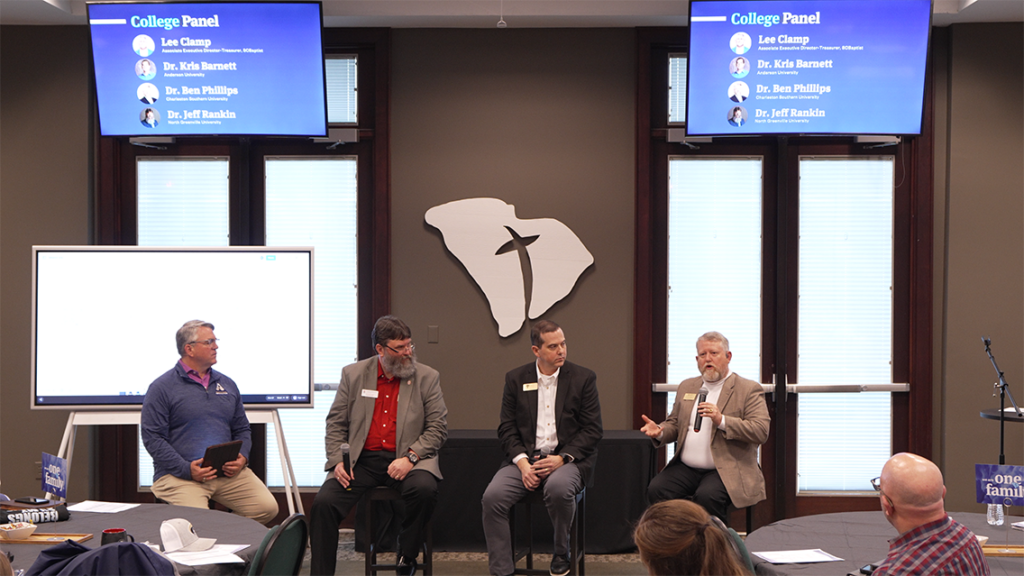Fostering Collaboration and Vision in Christian Education
Recently, representatives from SCBaptist’s three Christian universities sat for a panel, providing a biblical worldview for preparing students for careers in ministry.
SCBaptist is proud to be ministry partners with Anderson University, Charleston Southern University, and North Greenville University to mold a new generation grounded in Christian principles.
Lee Clamp, SCBaptist’s Associate Executive Director-Treasurer, emphasized the importance of unity and intentional effort in this endeavor. “Figuring out how to work together in collaboration takes effort and intentionality.” Clamp pointed out that raising up biblically sound leaders and launching them is vital for impacting the lostness in South Carolina and beyond.

Academic and Spiritual Journeys
Each university brings a unique blend of academic rigor and spiritual depth, preparing students for both professional success and personal faith development. Dr. Jeff Rankin from NGU shared, “We help them in the efforts of mobilization for those who are saved to be sent and get a taste of what it looks like to be on mission.”
This approach is echoed across the campuses, with a focus on creating environments where students can explore their faith in every discipline, ensuring a well-rounded education that is both intellectually challenging and spiritually enriching.
Christian education serves as a cornerstone for developing leaders who are not just academically competent but also spiritually discerning. As Clamp puts it, “Not all the students are Christians on the university, but the faculty all say they believe that Jesus is the Son of God and he was buried and rose from the dead.” This educational model aims to instill a biblical worldview that students can carry into all areas of life.

Supporting African-American Pastors
The conversation also shed light on the specific challenges faced by African-American pastors, highlighting the need for greater understanding and support within the Christian educational community. Dr. Kris Barnett of AU discussed the importance of engaging with diverse perspectives, noting, “The bulk of our African-American students are in our divinity school…and getting to engage with folks that are coming from different cultures…makes our classroom more rich.”
This recognition of diversity not only enriches the educational experience but also fosters a more inclusive community that is better equipped to address the challenges faced by African-American leaders in ministry.
Nurturing the Call to Ministry
Finally, the discussion underscored the collective responsibility of both educational institutions and the church to recognize and nurture the call to ministry among young believers. Dr. Rankin reflected on this, stating, “Maybe we need to, in our efforts in talking to churches, help people call out vocational pastors.”
This sentiment highlights the crucial role of mentorship and encouragement in fostering the next generation of Christian leaders, emphasizing the importance of creating pathways for those called to serve in pastoral and missionary capacities.




